Fentanyl is a highly addictive and highly regulated prescription opioid that is generally prescribed in hospital settings for short-term pain management. The medication is usually only prescribed in the most severe circumstances, such as after surgery or a serious injury that results in extreme pain. According to the Centers for Disease Control and Prevention, fentanyl can be anywhere from 50 to 100 times more potent than morphine.
While fentanyl is prescribed for pain, like other opioids, the medication causes intense levels of euphoria, which makes it desirable for illicit use. In addition, fentanyl and its derivatives are often made illegally and purchased by individuals looking to experience the effects. Unfortunately, any time fentanyl or its derivatives are used outside the oversight of a physician, the risk of becoming addicted or overdosing is extremely high. Further, illicitly obtained fentanyl can be even more dangerous due to its questionable ingredients. Therefore, seeking professional treatment for fentanyl addiction is vital.
Statistics Associated With Fentanyl Use and Addiction
In 2021, there were over 106,000 drug-related overdose deaths in the United States. Over 70,000 of these deaths were related to “opioids other than methadone,” which is primarily fentanyl. At least 67% of drug overdoses are now associated with fentanyl, and the number of deaths caused by primarily fentanyl has risen by over 55% since 2016.The problems with fentanyl have grown quickly; there were 22 times more overdose deaths from synthetic opioids such as fentanyl in 2021 than there were in 2013.
While fentanyl is dangerous, there is a specific concern with fentanyl that has been illegally made. These substances are often sold illicitly and come from unmonitored drug-market manufacturers. Therefore, what is being sold as fentanyl can contain questionable amounts of fentanyl or fentanyl derivatives, but also other ingredients such as methamphetamine, cocaine, or heroin to heighten the effects. Most recent cases of overdose and death related to fentanyl in the U.S. are associated with these illegally made substances.
Common Symptoms of Fentanyl Use
Learning how to tell if someone is using fentanyl can be important because familial intervention may be necessary to ensure the individual gets the help they need. Some fentanyl addiction symptoms may be easy to overlook or conceal in the beginning. For example, problems focusing or nausea may not be immediately apparent. However, as time goes on, signs of fentanyl addiction can be more obvious, such as needing more of the drug to feel okay or taking dangerous risks to obtain the substance.
A person under the influence of fentanyl may exhibit a number of different symptoms. A few of the most common signs of fentanyl abuse include:
- Overtly happy or depressed mood
- Nausea, vomiting, or diarrhea
- Slowed respiration
- Confusion or problems focusing
- Fatigue or “nodding off” repeatedly
- Severe fentanyl cravings and fixation on finding more
- Anxiety
- Heightened heart rate
- Loss of consciousness
- Loss of interest in once-enjoyable activities
- Difficulty with handling life responsibilities
- Swelling of the hands and feet
Long-Term Effects of Fentanyl Abuse
Fentanyl addiction comes with a major burden for the individual that can be detrimental to both their mental and physical health. Oftentimes, long-term effects of fentanyl abuse can be life-altering, and may include:
- Damage to personal relationships
- Severe damage to health, such as organ damage
- Legal challenges
- Sexual dysfunction
- Losing custody of children
- An inability to maintain gainful employment
- Abusing other substances
- Worsened pre-existing mental and physical health conditions
- Social isolation
- Contracting diseases related to drug use, such as hepatitis or HIV
- Overdose
- Death caused by an overdose
The Risks of Overdose With Fentanyl Use
Overdose is one of the biggest concerns when fentanyl addiction is present. The risks grow even higher for individuals abusing fentanyl from a questionable source or made from an illicit fentanyl derivative because the potency of these substances is not reliable. Therefore, knowing the signs of fentanyl overdose is critical if you struggle with an addiction or have a loved one struggling with fentanyl addiction. If you notice any overdose symptoms, seek emergency help right away. Signs of overdose can include:
- Slurred speech/difficulty speaking
- Dizziness or disorientation
- Difficulty breathing
- Excessive sleepiness
- Poor physical coordination
- Seizures
- Confusion
- Skin that feels clammy or cold
- Losing consciousness
Common Co-Occurring Disorders Associated With Fentanyl Addiction
Substance abuse disorders and mental health disorders commonly happen together as co-occurring conditions. In many cases, one condition will occur first and exacerbate the symptoms of the other, although it may not always be clear whether the addiction or mental health disorder occurred first. Fentanyl addiction often involves symptoms that can be related to co-occurring disorders such as depression, post-traumatic stress disorder (PTSD), and antisocial personality disorder. Additionally, it is not uncommon for people grappling with fentanyl addiction to also have an addiction to other substances.
Treatment Options for Fentanyl Addiction
Fentanyl addiction can be one of the most difficult substance abuse disorders to overcome, and each person’s needs can be unique. Therefore, treatment for fentanyl addiction should be specifically designed to support the individual in all the best ways. After a thorough evaluation during admission to a treatment program, treatment may include:
- Detox: Detox involves a medically supervised process to monitor a fentanyl-dependent individual to ensure individual safety and manage the uncomfortable symptoms as the substance leaves the body.
- Medication-Assisted Treatment (MAT): MAT may be recommended to deter symptoms of withdrawal during recovery from fentanyl addiction and can be highly effective for supporting long-term recovery. Certain medications are prescribed that are specifically formulated to decrease cravings and support function during recovery.
- Individual Therapy: Therapy may be offered on an inpatient or outpatient basis and will involve one-on-one therapeutic sessions with a professional. Therapy can involve discussing symptoms, thoughts, and coping strategies to achieve sobriety, as well as proven forms of therapy such as cognitive behavioral therapy (CBT).
- Group or Family Therapy: Group therapy offers peer-to-peer support between like-minded individuals who understand the struggles associated with fentanyl addiction. These meetings are overseen by treatment providers and can help with relapse prevention, identifying triggers, and more.
- Family Therapy: Family therapy strengthens the individual’s primary support system during recovery. Close family members take part in therapeutic sessions with the individual in treatment to gain a better understanding of addiction and how they can play a positive role in recovery.
- Experiential Therapy: Experiential therapy is a type of therapy that involves alternative, experiential therapeutic sessions to help mitigate fentanyl cravings and enhance the recovery process. These experiential therapy sessions may include meditation, art or music therapy, yoga, or some type of recreational experience.
Escape the Dangers of Fentanyl Addiction With the Right Treatment
While any kind of addiction is dangerous, fentanyl addiction carries a significantly greater risk of overdose than many other substance abuse disorders. Therefore, finding the right treatment as soon as possible is important. At Vanguard Behavioral Health, we provide a full collection of services to help people navigate the challenges of fentanyl addiction and reclaim their lives. We know recovery is possible with a holistic, whole-person approach to substance abuse disorder treatment. Our goal is to build a personalized treatment plan that best supports an individual’s long-term recovery goals. Therefore, each person who comes to Vanguard for help undergoes a thorough evaluation to ensure a proper course of treatment. We have treatment centers available in both Albuquerque, NM, and Tucson, AZ. Reach out to discuss our treatment options for yourself or your loved one today.








